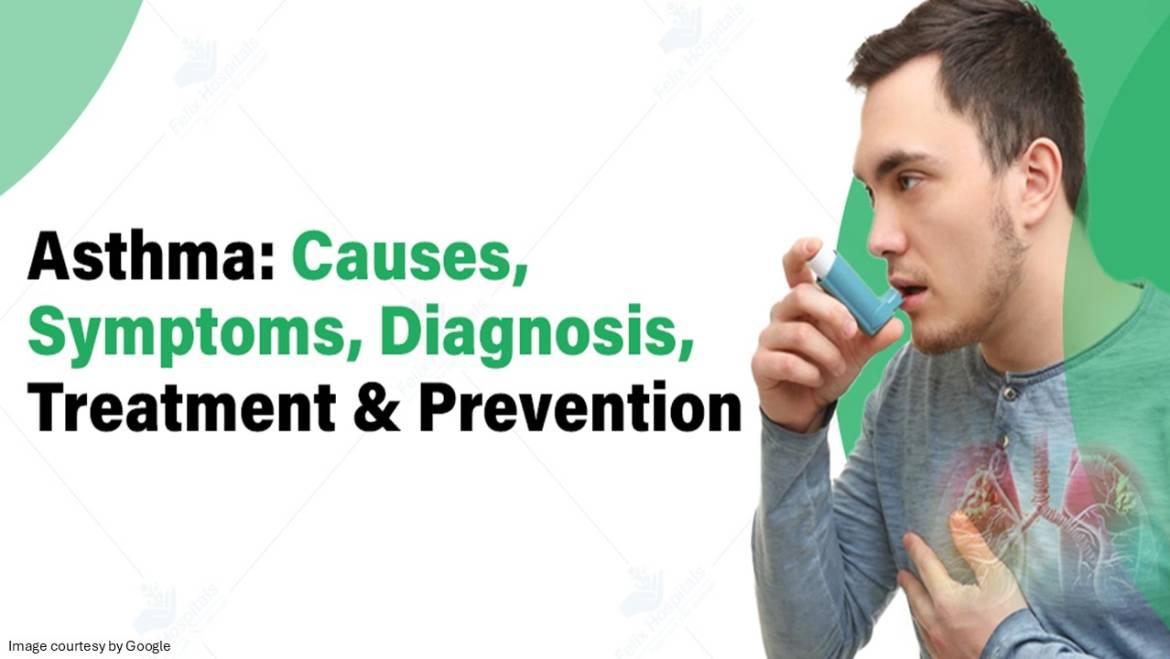It’s easy to suspect a coughing episode as a sign of a cold or bronchitis, but if that cough keeps recurring, it could indicate asthma. Effective management of asthma cough requires initial diagnosis and treatment and regular and long-term follow-up care to maintain optimal control.
Asthma and cough
Asthma is a common disease of the pulmonary airways characterized by trouble getting air in and out of the lungs. It is a disease that affects the lungs. Does asthma make you cough? Asthma causes repeated chest tightness, shortness of breath, wheezing, and early morning or nighttime coughing. It interferes with normal breathing by narrowing the airways in the lungs. When your airways narrow, the amount of oxygen entering the body and the amount of carbon dioxide leaving the body are both restricted. Your bronchial tube responds by squeezing tight. When this happens, you are more likely to cough when it comes into contact with asthma triggers, such as smoke, dust, and cold air. Asthma and coughing often go hand in hand, especially a dry, chronic cough, which can be a sign of asthma. How to stop asthma cough? With this blog, you’ll find an explanation of how to treat and reduce your chances of experiencing asthmatic coughing.
Risk factors for asthma, cough
- Genetic susceptibility and gene-environmental interactions
- Indoor and outdoor allergens
- Tobacco Smoke
- Certain infections
- Other pollutants
- Obesity
- Air pollution
- GERD can worsen asthma symptoms
- Respiratory illness

Asthma cough triggers
Coughing-associated asthma usually occurs after exercise, after exposure to specific triggers, after laughing, and often at night. Common asthma triggers include exercise, stress, certain medications (like beta blockers), certain food additives, cold and flu, chemical fumes or strong odors, and weather conditions, including cold air, heat, humidity, or rapidly changing weather patterns.
Asthma can occur at any age and is the most common chronic condition among children in the USA. According to clinical data, it primarily affects children under 6. For this population, asthma is often associated with eczema and hay fever. Environmental allergens also play a significant role in the onset of disease. Adults can have asthma, too.
There is no reliable test or standardized diagnostic criteria for asthma and associated coughing. In some cases, observing a response to treatment may help confirm the diagnosis of asthma; however, the lack of response to asthma medications, such as inhaled corticosteroids or bronchodilators, does not rule out asthma.
The following are the key indicators for considering a diagnosis of asthma and associated coughing:
- Family history of asthma
- Intermittent symptoms
- Physical examination
- Association of symptoms of weather change, exercise, smoke, dust house-dust mites, strong emotional expression, viral infection, animals with fur or feathers, airborne chemicals or dust
- Documenting variable airflow limitation
- Considering other diagnoses
Routine checkups like blood gas analysis, spirometry, serum electrolytes, eosinophil count, chest x-rays, and other tests to rule out specific diseases help identify the current health condition.
Spirometry is a test to determine how well your lungs work: how much you inhale and exhale and how quickly you breathe.
Goals of asthma treatment
The goals of asthma treatment are stated below:
- Asthma treatment helps prevent recurrent exacerbations and reduces the need for emergency hospitalizations.
- Maintain better pulmonary function
- Asthma management helps maintain normal physical activity levels.
- Good asthma careprovides optimal pharmacotherapy with minimal or no adverse reactions.
Controlling asthma cough
How to stop asthmatic cough? Well, prevention is always the key. Individuals with asthma should be aware of the situations that trigger their cough and avoid them whenever possible. If coughing or other asthma symptoms are severe or unpredictable, or if they occur more than twice a week, consulting an allergist can help identify their cause and prescribe long-term therapy to control or eliminate them. Fast-acting asthma medications prescribed by allergists are extremely effective in relieving coughing attacks. This primarily includes a fast-acting bronchodilator inhaler, which widens the airways to offer quick relief. A corticosteroid inhaler helps relieve inflammation when used once a day.
Asthma medications
Medications used for asthma management are divided into two broad categories: relievers and controllers.
Relievers- Relievers are medications formulated to provide quick relief. These generally include bronchodilators. These are useful in treating symptoms associated with exercise or providing rapid relief from acute airflow obstruction. Almost all asthma patients require reliever medications. The most used reliever medications are inhaled beta-2 agonists, such as albuterol.
Controllers – Controllers are medications used in the long term to maintain optimal asthma control by reducing airway inflammation. Inhaled corticosteroids are the most commonly used controller medications for asthma management. These are most commonly used in patients with more severe conditions. Inhaled corticosteroids are combined with long-acting beta-agonists, a class of asthma medications. This combination improves asthma symptoms at a lower dose of inhaled corticosteroids.
The effectiveness of treatment:
The effectiveness of asthma treatment can be judged on two major outcomes:
- Current impairment
- Risk of future attacks
The medicines needed to control impairment and to manage the risk of attacks are different, but both outcomes need to be considered to judge the effectiveness of treatment. The safety and efficacy of asthma medications have been established. A major step toward more consistent and uniformly effective treatment is to use asthma medications regularly. Treatment is ineffective only when a patient fails to use medications regularly.
Verdict!
With asthma, educating yourself is crucial for managing symptoms. An asthmatic should carry an asthma action plan provided by their doctor and carefully follow the steps to take in case of an asthma attack. Since even mild asthma symptoms can progress in severity, you should stick to the treatment plan given by your healthcare provider and have regular checkups.



